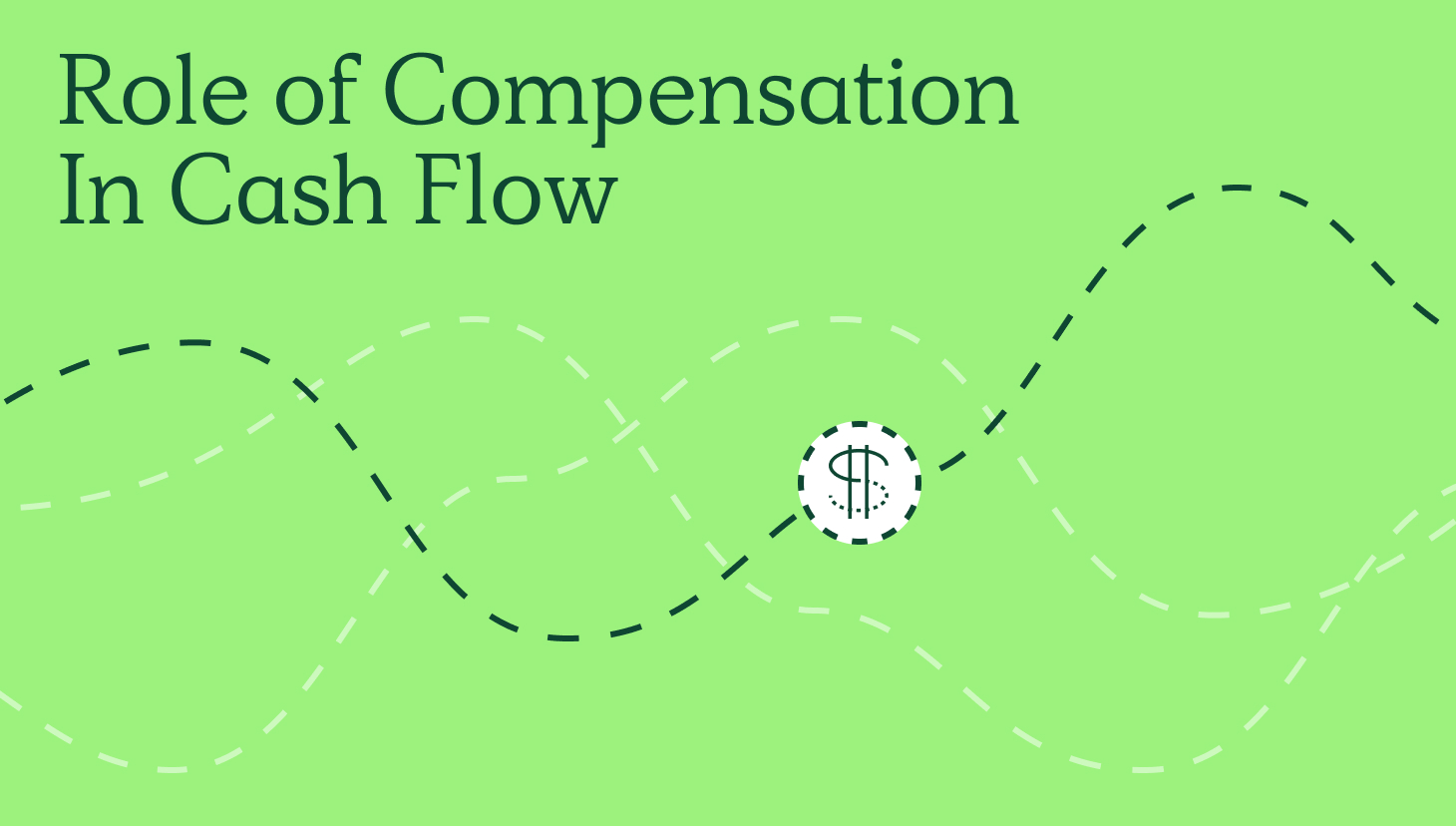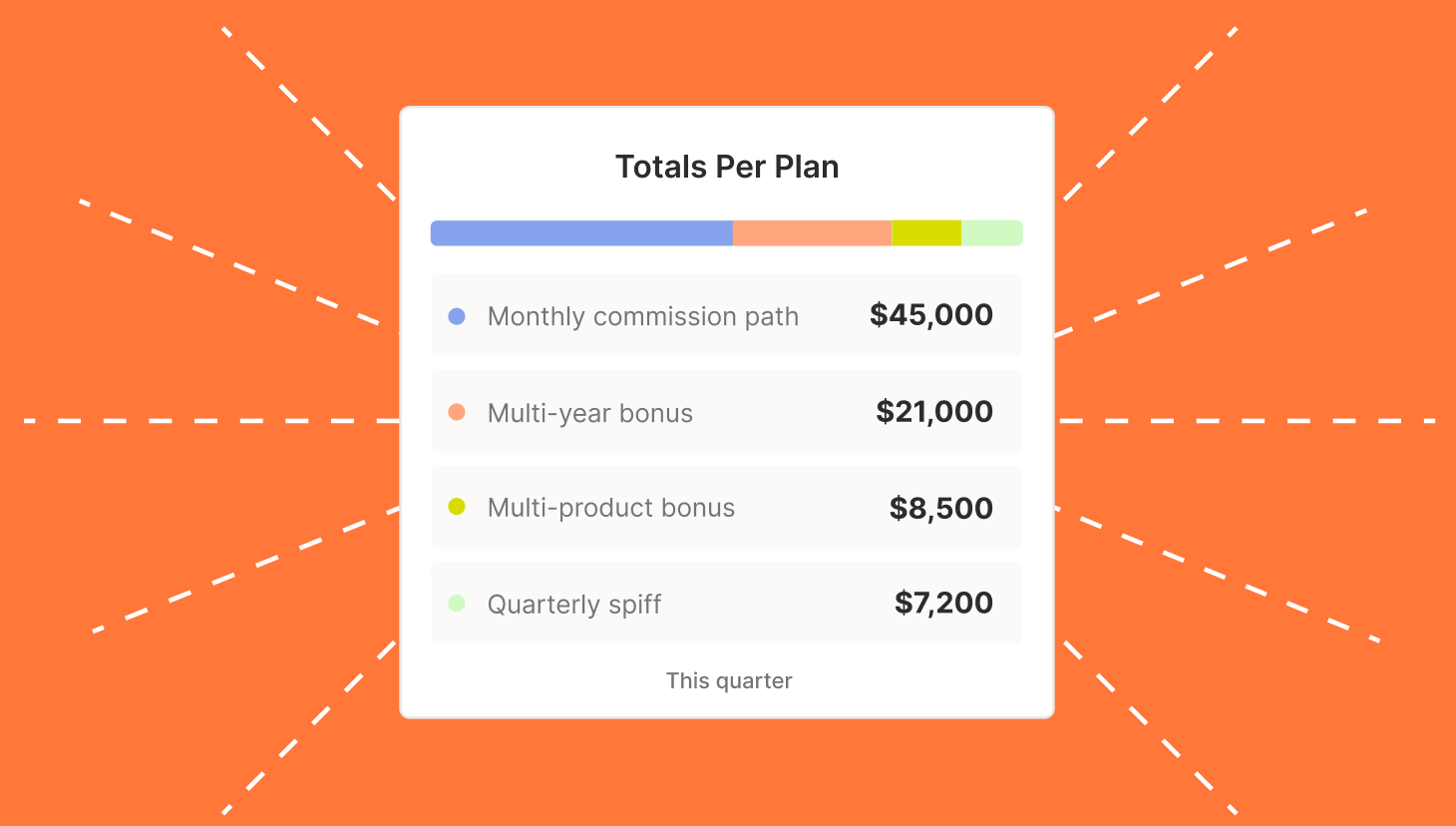In our guide to sales compensation plans, we just covered single rate bonuses and why they are simple to follow but lack some flexibility. We’ve also written about both single rate and multiple rate commissions so far. In this blog, we’ll be covering multiple rate bonuses.
Create Compensation Plans with confidence
RevOps, sales leaders, and finance teams use our free tool to ensure reps’ on-target earnings and quotas line up with industry standards. Customize plans with accelerators, bonuses, and more, by adjusting 9 variables.
Build a Comp PlanWhat you need to know about multiple rate bonuses
A quick reminder that even though some organizations use the words bonus and commission to mean the same thing, there is a major difference between the two. A commission is a percentage (either a single or multiple rate) that a sales rep earns of some revenue number. Whereas a bonus is a set amount (again, either single or multiple rate) that a salesperson earns for doing a certain action. If you earn 10% of every deal you close, that’s a commission. If you earn $100 for every deal you close, that’s a bonus.
A multiple rate bonus is when the amount you earn for your action varies based on things like your quota attainment, the size of the deal, the length of the contract, etc.
Examples of multiple rate bonus plans
An Account Executive is expected to sell 20 security systems per quarter and is paid $200 for the first 20 systems they sell and $400 for any systems they sell over 20.
A Sales Development Representative has a monthly goal of setting 25 meetings and earns a $0 bonus for the first 10 meetings that occur and $100 for every meeting (including the first 10) if more than 10 occur.
A Sales Manager is responsible gets a $1,000 bonus for every deal someone on their team closes that is a 1-year contract and a $2,000 bonus for every deal someone on their team closes that is a 2-year contract.
Pros of multiple rate bonus plans
Quite flexible. At QuotaPath, we’ve seen multiple rate compensation plans with as few as 2 and as many as 100 different bonus rates. While we certainly don’t recommend 100 bonus rates, a multiple rate bonus plan gives you the flexibility to accommodate for your specific needs.
Accounts for discounting, longer contracts, etc. Need to discourage discounting? You can set a lower bonus rate for deals with a high discount rate. Want to encourage longer-term contracts? Give your reps a higher bonus if the contract is 2 or 3 years long instead of 1. With multiple rate plans, you have the ability to account for the exact behavior you’d like to encourage.
Cons of multiple rate bonus plans
Added complexity. Any time you add additional tiers, rates, or payout schedules, you’re adding complexity to your compensation plan. While complexity can be necessary, it can also add confusion and prevent salespeople from truly understanding how much they’re earning. Be careful with complexity, it can ruin a great comp plan.
Not the best solution for revenue targets. This goes for all types of bonuses. Per the definitions we laid out above, a commission is a percentage of revenue, whereas a bonus is a set dollar amount. While you can account for different deal sizes with multiple rates of bonuses, usually a commission percentage is the better way to compensate salespeople who are selling contracts that can vary greatly in revenue value.
QuotaPath handles nearly every comp plan you can imagine, so whether your company uses bonuses, commissions, or a combination of both, we’d love to help you! Beyond the known benefits of sales commission tracking software, QuotaPath is free and easy to try out for your team.



